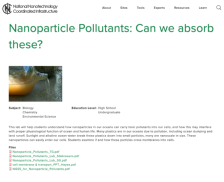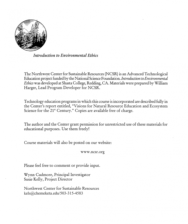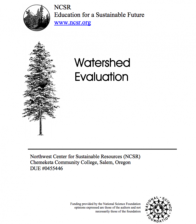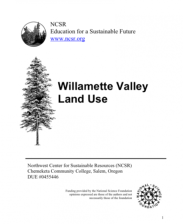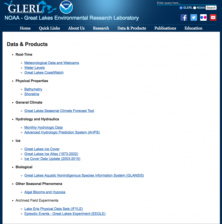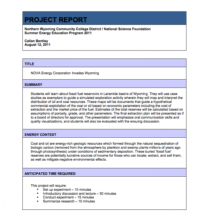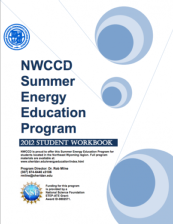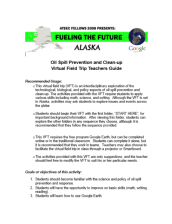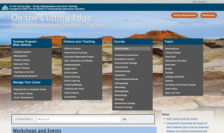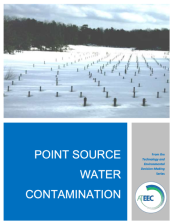Browse Resources
Resources |
|---|
This lab, presented by the National Nanotechnology Coordinated Infrastructure, introduces students to the interaction between plastics, nanotechnology, and the natural world. Students will "understand how nanoparticles in our oceans can carry toxic pollutants into our cells, and how this may...
This 61-page course guide provides an overview of the Environmental Ethics course. This course "examines human and human/non-human relationships from an extra-cultural perspective." Topics include definitions of environmental ethics, sustainability, "centrisms," "Green Politics," "Deep Ecology," "...
Module Description:
This module examines the impact of non-point sources of pollution on watersheds through multiple classroom sessions, a laboratory, and field-based experience. The module is composed of the following instructional sessions: (1) A preparatory activity in which students use remote...
Module Description:
This module uses aerial photographs to evaluate land use change at the local level and illustrate changes of a landscape over a long period of time. This module expands on an existing laboratory in Environmental Science III, pp.115-126 - The Use of Aerial Photography to...
This page, from the National Oceanic and Atmospheric Administration Great Lakes Environmental Research Laboratory, offers collections of data for use by educators, students, researchers, and the general public. There are nine categories of data available: Real-Time Data, Physical Properties Data,...
This lesson, created by Callan Bentley, introduces students to the concept of fossil fuel reservoirs within Laramide basins of Wyoming. Students will use case studies as examples to guide a simulated exploration activity in which they will map and interpret the distribution of oil and coal...
This 43-page student workbook was created to supplement the Summer Energy Education Program, offered by the Northern Wyoming Community College District from 2010 through 2012 with funding from a National Science Foundation's Advanced Technology Education grant. The program was designed to serve...
This activity, provided by the Advanced Technology Environmental and Energy Center (ATEEC), consists of a virtual field trip that walks students through an "interdisciplinary exploration of the technological, biological, and policy aspects of oil spill prevention and clean-up" in Alaska. The field...
This website, managed by the National Association for Geoscience Teachers, provides professional development resources for undergraduate geoscience educators. Under "Develop Program-Wide Abilities," educators will find information on teaching complex systems, facilitating undergraduate research, and...
This 40-page module, published by the Advanced Technology Environmental Education Center (ATEEC), is part of a series of instructional materials on environmental technology and decision-making. This module focuses on the science-based background and research on point source water contamination. ...
|
| ← PreviousNext → |
